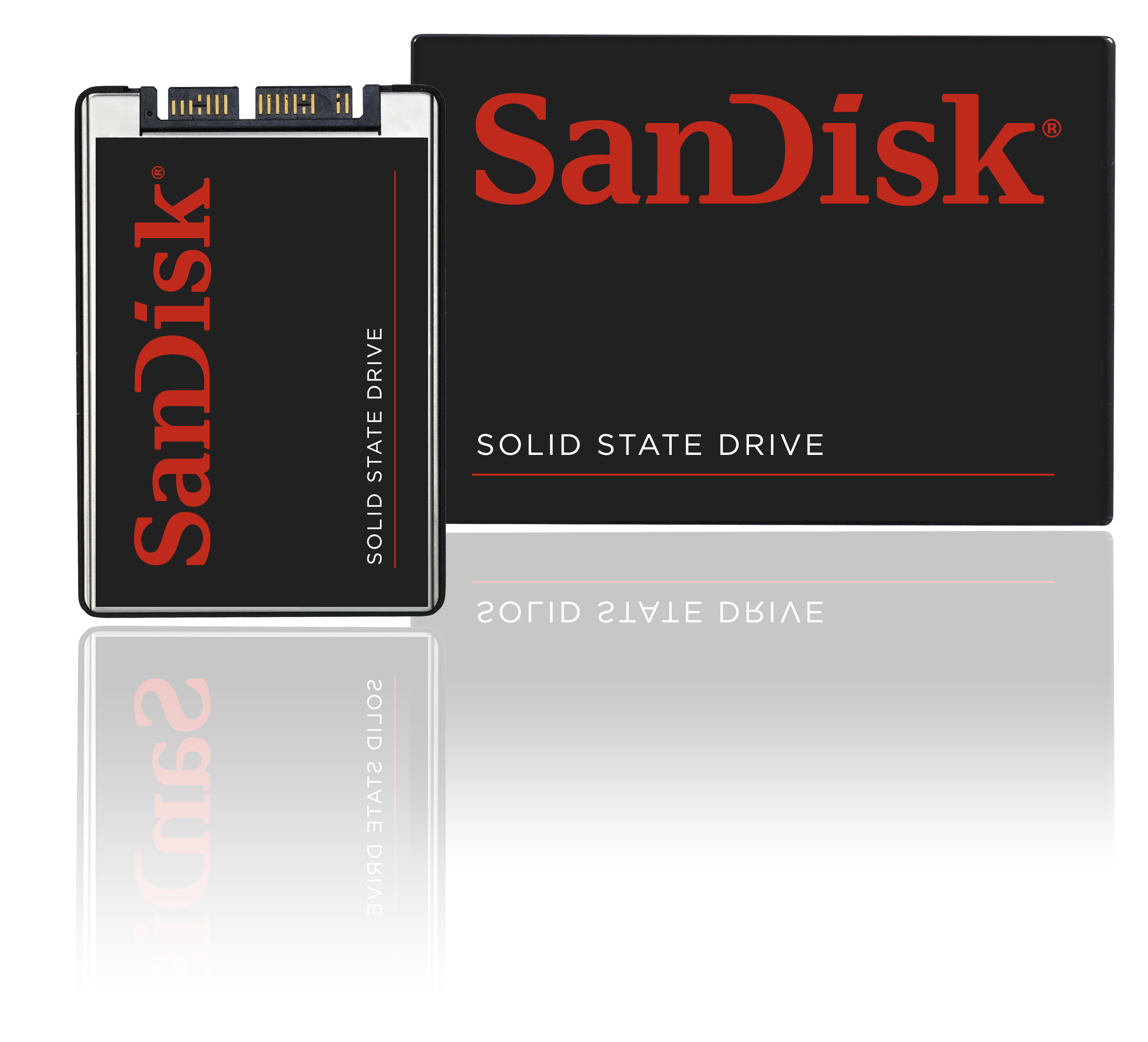SanDisk Shipping New G3 SSD With ExtremeFFS
It's Extreme, FFS!
Flash memory company SanDisk is looking to be more than SD and CF cards. SanDisk announced that it is now shipping its G3 Solid State Drives to retailers in North America and Europe.
On the performance front, the G3 boasts sequential performance of up to 220MB/sec read speed and up to 120MB/sec write speed, which the company likes to describe as "twice as fast as a 7,200 RPM HDD." Those running Windows 7 will appreciate that the G3 supports the TRIM command.
SanDisk bills the G3 as a "rugged drive" that can endure up to 80TB of data written to it over its lifetime. Perhaps more unique to the G3 is SanDisk's file system technology for SSDs, which it calls the ExtremeFFS, or Extreme Flash File System.
The memory company explained, "ExtremeFFS incorporates a fully non-blocking architecture in which all of the NAND channels can behave independently, with some reading while others are writing and garbage collecting. Another key element of ExtremeFFS is usage-based content localization, which allows the advanced flash management system to 'learn' user patterns and over time localize data to maximize the product’s performance and endurance."
SanDisk previously said that this technology could result in improvement in random write performance by up to 100 times in best case scenarios. In the G3 announcement, however, SanDisk said that ExtremeFFS has the "potential to accelerate random write performance and thus extend the endurance of SanDisk G3 SSDs…"
SanDisk G3 SSD is available now in U.S. and UK e-commerce sites in 60GB and 120GB capacities with prices of $229.99 and $399.99 respectively. The drive will be available at retailers in North America and Europe soon.
Get Tom's Hardware's best news and in-depth reviews, straight to your inbox.
-
drowned Like all SSDs, it looks good on paper but time will tell how truly consistent it is on the long term.Reply -
anamaniac Or, how about a 22nm Gen 3 512GB SLC x35-e from Intel being named the FFS?Reply
TI think only such a drive would deserve such a name, not some junk like these... -
micky_lund ahhh...it'll probably be as useless as their U3 USB drives...damn i hate the loading on old computers (not mine, but still)Reply -
back_by_demand drownedLike all SSDs, it looks good on paper but time will tell how truly consistent it is on the long term.I suppose like all testing there is more than one way to simulate conditions. Instead of running an SSD for an actual 5 years, having one in the field for 6 months but used by millions of people would show up any inherant flaws in the technology. So far I haven't heard any major issues to do with SSD's. Buy one, use one, don't worry about your data. If you put all your faith in HDD's dont forget that they fail too. As long as you do regular backups then all you have to worry about is the manufacturers warranty replacing it.Reply -
rbarone69 Trying to rate SSDs in terms of RPMs is pure stupidity. It's apples and oranges.Reply
Oh well... I see what they are trying to do, they are trying to sell to "the parents" of the geeks and not the geeks themselves... I'll tell you one thing, my father doesn't know the difference between 5400, 7200, 10,000, 15,000 or 40,000 other than the numbers are bigger. He'd say, "I can get a drive that holds 5million photos and hours more video for MUCH cheaper, why would I want this?"
Oh well... My point is that SSDs are for geeks and businesses at the moment. Until prices come down the general population will opt for more capacity through pure ignorance.
-
mavanhel Still too expensive for an average user though...Hopefully soon the price will really start to drop.Reply -
bydesign @back_by_demandReply
You aren't looking; they are not nearly a reliable in the field as normal hard drives, at least not yet. With the current gen this remains to be seen. The reason that you don't hear as much about it is they are in raided in the corporate world failure isn't typically as severe as at home. They also have very low penetration, mainly as result of cost.

